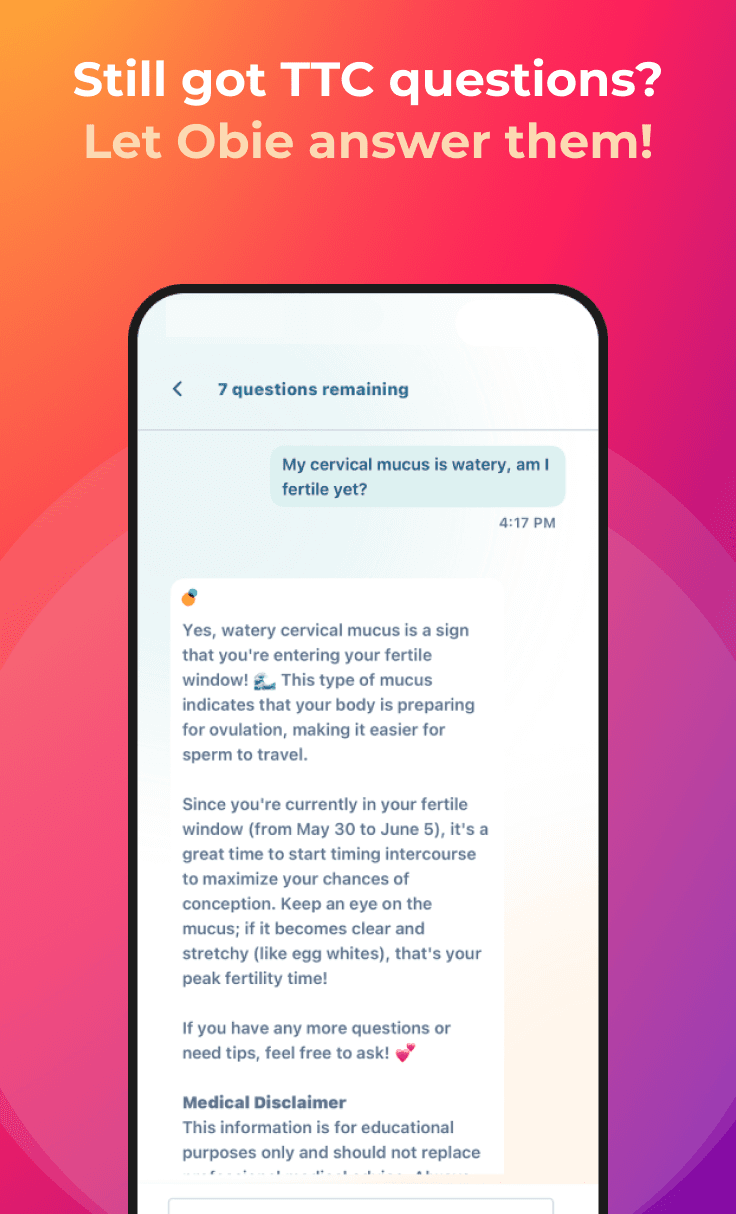Preconception Health Assessments for Women: A Crucial Step in Fertility Preparation
Obie Editorial Team

When planning for pregnancy, understanding your health status is one of the most important steps you can take. Preconception health assessments help identify and manage conditions that could affect your ability to conceive or impact pregnancy outcomes. By addressing potential concerns early, you can improve your chances of a healthy conception, pregnancy, and baby.
Why Preconception Health Assessments Matter
Many health conditions that influence fertility and pregnancy outcomes are manageable — but only if they are detected early. According to Johnson et al. (2006), preconception care plays a critical role in improving maternal and infant health outcomes. Identifying and managing issues like diabetes, hypertension, thyroid disorders, or nutritional deficiencies before pregnancy can reduce the risk of complications.
Some conditions may go unnoticed until a woman attempts to conceive, making preconception assessments a proactive and empowering step.
Key Areas to Address in a Preconception Health Assessment
A comprehensive preconception health assessment typically includes the following:
1. Medical History Review:
- Discuss any chronic conditions such as diabetes, hypertension, or thyroid disorders.
- Review past pregnancies, miscarriages, or birth complications to assess potential risks.
- Identify medications that may need to be adjusted for safety during pregnancy.
2. Blood Pressure and Cardiovascular Health:
- High blood pressure increases the risk of preeclampsia and preterm birth.
- Managing hypertension before conception is key to ensuring a safer pregnancy.
3. Screening for Diabetes and Blood Sugar Levels:
- Uncontrolled blood sugar can increase the risk of miscarriage, birth defects, and other complications.
- Your healthcare provider may recommend lifestyle changes or medication adjustments to regulate blood sugar levels.
4. Nutritional Deficiencies and Supplement Guidance:
- Testing for deficiencies in iron, folic acid, and vitamin D is crucial.
- Folic acid supplementation is especially important in reducing neural tube defects.
5. Weight and BMI Assessment:
- Achieving a healthy weight improves fertility outcomes and reduces the risk of pregnancy complications.
- Your provider may recommend dietary adjustments, exercise plans, or support for weight management.
6. Immunization Review:
- Ensuring you are up to date on vaccines like rubella, measles, and varicella is essential, as these illnesses can cause serious complications during pregnancy.
7. Genetic Counseling and Screening:
- If there’s a family history of genetic conditions, genetic counseling can provide insights and identify potential risks.
- Carrier screening tests may be recommended for conditions like cystic fibrosis or sickle cell anemia.
8. Mental Health and Emotional Well-Being:
- Discussing your mental health is important, as stress, anxiety, or depression can affect fertility and pregnancy.
- If needed, your provider may suggest counseling, mindfulness practices, or medication adjustments.
9. Lifestyle Factors:
- Your healthcare provider may discuss steps to reduce alcohol, tobacco, and recreational drug use — all of which can impact fertility.
10. Environmental and Occupational Risks:
- Exposure to harmful chemicals or radiation in the workplace or home environment should be addressed to reduce potential risks to fertility and pregnancy.
The Importance of Partner Involvement
Preconception assessments are not just for the individual planning to conceive. Involving your partner in health screenings can improve fertility outcomes, as sperm quality, overall health, and lifestyle habits also influence conception and pregnancy success.
Practical Tips for Preparing for Your Assessment
- Schedule Your Appointment Early: Ideally, book your assessment at least 3-6 months before trying to conceive.
- Prepare Your Medical History: Bring a list of medications, past surgeries, and any chronic conditions.
- Ask Questions: Discuss fertility concerns, prenatal vitamins, and lifestyle adjustments with your healthcare provider.
Final Thoughts
Preconception health assessments are an empowering step that allows you to take control of your fertility journey. By identifying potential risks and adopting healthier habits before pregnancy, you are giving yourself the best chance of a successful conception and a healthy baby.
Reference: Johnson, K., Posner, S. F., Biermann, J., Cordero, J. F., Atrash, H. K., Parker, C. S., ... & Curtis, M. G. (2006). Recommendations to improve preconception health and health care—United States: a report of the CDC/ATSDR Preconception Care Work Group and the Select Panel on Preconception Care. Morbidity and Mortality Weekly Report: Recommendations and Reports, 55(6), 1-23.








